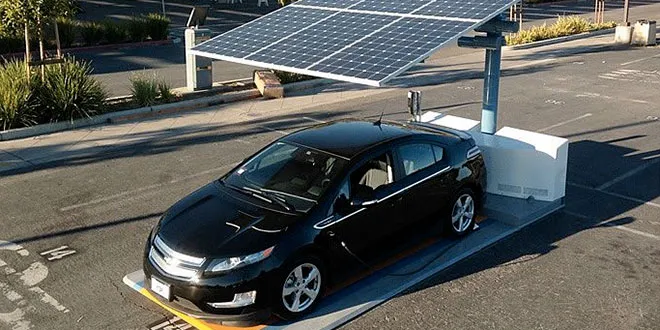Unlock the full potential of green energy by exploring the benefits and intricacies of electric car charging with solar panels. Learn how this eco-friendly solution can revolutionize your daily commute and contribute to a sustainable future.
Introduction
As the world shifts towards cleaner and more sustainable energy solutions, the integration of solar panels into the electric car charging process has gained significant attention. This article aims to shed light on the concept of “Electric Car Charging With Solar Panels,” offering insights into its advantages, technical aspects, and its role in fostering a greener transportation landscape.
The Synergy of Solar Power and Electric Vehicles
1. Harnessing Clean Energy*
Electric car charging with solar panels involves using photovoltaic cells to convert sunlight into electricity. This process not only reduces dependence on traditional grid power but also harnesses clean, renewable energy.
2. Reducing Carbon Footprint*
By utilizing solar power for electric car charging, drivers can significantly decrease their carbon footprint. This sustainable approach aligns with global efforts to combat climate change and promote environmental conservation.
3. Cost Savings*
While the initial investment in solar panels may seem significant, the long-term cost savings are substantial. Generating your electricity means lower monthly energy bills and, in some cases, the possibility of selling excess energy back to the grid.
Unveiling the Future: Electric Car Charging With Solar Panels
Discover the revolutionary concept of charging your electric car with solar panels and witness the seamless fusion of sustainable energy and eco-friendly transportation.
The Components of a Solar-Powered Charging System
1. Solar Panels*
Invest in high-quality solar panels designed to capture maximum sunlight. Consider factors such as efficiency, durability, and the available space for installation.
2. Inverter*
The inverter converts the direct current (DC) generated by solar panels into alternating current (AC) compatible with electric vehicles and the grid.
3. Charge Controller*
A charge controller regulates the flow of electricity from the solar panels to prevent overcharging and optimize the charging process.
4. Energy Storage (Optional)*
For periods of low sunlight or overnight charging, an energy storage system, such as a battery, can store excess energy generated during peak sunlight hours.
Installation Considerations
1. Solar Panel Orientation and Tilt*
Optimal placement of solar panels is crucial for maximizing energy capture. Consider the angle and orientation to ensure the panels receive sunlight throughout the day.
2. Grid Connection*
Maintaining a connection to the grid allows for uninterrupted charging during periods of low sunlight. Excess energy generated can be fed back into the grid.
3. Efficiency Monitoring*
Implement a monitoring system to track the efficiency of your solar panels and overall charging system. This data helps identify potential issues and ensures optimal performance.
Advantages of Electric Car Charging With Solar Panels
1. Sustainability*
Solar-powered electric car charging is a sustainable and eco-friendly solution that reduces reliance on non-renewable energy sources.
2. Cost Savings*
Long-term cost savings result from lower monthly energy bills and potential returns on excess energy sold back to the grid.
3. Energy Independence*
Generate your electricity, promoting a sense of energy independence and reducing reliance on external power sources.
Conclusion
Electric car charging with solar panels represents a pivotal intersection of sustainable energy and transportation. By understanding the components, installation considerations, and the myriad advantages, individuals can make informed decisions about adopting this eco-friendly practice. As technology advances and solar energy becomes more accessible, the synergy between solar power and electric vehicles will play a significant role in shaping a greener and more sustainable future.
